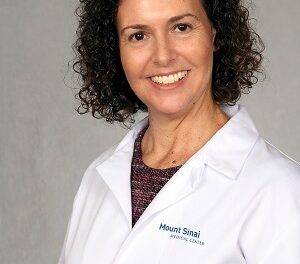 In the aftermath of Hurricane Charley in 2004, Holy Cross Hospital in Ft. Lauderdale, FL, joined a contingency of hospitals to provide disaster relief at Lee Memorial Hospital in Cape Coral and Bon Secours – St. Joseph Hospital in Port Charlotte. The hospital deployed several teams to serve as part of a mutual aid program known as D.A.S.H. (Disaster Aid to Stricken Hospitals).
In the aftermath of Hurricane Charley in 2004, Holy Cross Hospital in Ft. Lauderdale, FL, joined a contingency of hospitals to provide disaster relief at Lee Memorial Hospital in Cape Coral and Bon Secours – St. Joseph Hospital in Port Charlotte. The hospital deployed several teams to serve as part of a mutual aid program known as D.A.S.H. (Disaster Aid to Stricken Hospitals).
After a credentialing and orientation process, teams went right to work, caring for the large influx of patients following the storm. We replaced exhausted hospital workers so they could return to their families and homes. Many returned to find nothing.
Our team arrived to find widespread destruction at the hospitals. Roofs had been ripped away, windows shattered and gaping holes that allowed rain and debris to come showering down. We heard stories of staff physically carrying patients up and down staircases to safety during the storm’s fury and one nurse’s harrowing tale of being pushed into a storage closet and handed a cell phone to call a family she thought she might never see again.
When someone stands amid rubble that was once their home or an ICU, emotions are raw and the experience indescribable. Our spirits are most vulnerable in times of crisis and often are left with emotional wounds that take a long time to heal. This is where the Chaplains work begins – amid the shock, grief, loss, and suffering.
After the events of 9/11, Holy Cross Hospital equipped its Spiritual Care team with additional education and training in disaster and crisis response. In addition to their theological education, chaplains attended training through the International Critical Incident Stress Foundation and the Green Cross Academy of Traumatology completing Certificates of Specialized Training in Spiritual Care in Crisis Intervention, and Mass Disasters and Terrorism.
Spiritual Care is an integral component of our hospital’s hurricane preparedness plan. Eight fulltime chaplains and pastoral associates provide supportive care to patients, families, and staff during and following the storm.
In the chaos of these events, victims search to find meaning to what has happened to them. Any preparedness plan should include attention to staff needs and time to debrief on the experience. It is essential to have people clinically trained to respect the broad nature of each person’s spiritual experience, so that their care mitigates the compassion fatigue and burnout that can arise as hospital staff respond to crisis.
As hospitals develop hurricane preparedness plans consideration should be given to the expectations of spiritual care providers. Chaplains must be able to:
• understand the "disciplined chaos" found at disaster sites and be able to function in face of overwhelming grief and loss;
• respond sensitively to the needs of ALL who are affected regardless of nationality, race, religion, belief, class, or sexual orientation;
• not proselytize, sermonize, or promote a particular religion or world view;
• work collegially with multi-organizational, multi-denominational and multi-cultural responders;
• function as a member of an interdisciplinary team within the Incident Command System and make appropriate assessments and referrals for mental health and other services;
• maintain a positive influence on patients, families and staff;
• recognize their personal and professional limits; and
• take time for good self-care as they serve throughout the crisis.
As part of the credentialing process, incident command leaders and hospitals may request Chaplain-responders to:
• provide proof of endorsement by religious denomination;
• show evidence of training in disaster response; and
• be oriented to the hospital environment and safety practices.


























